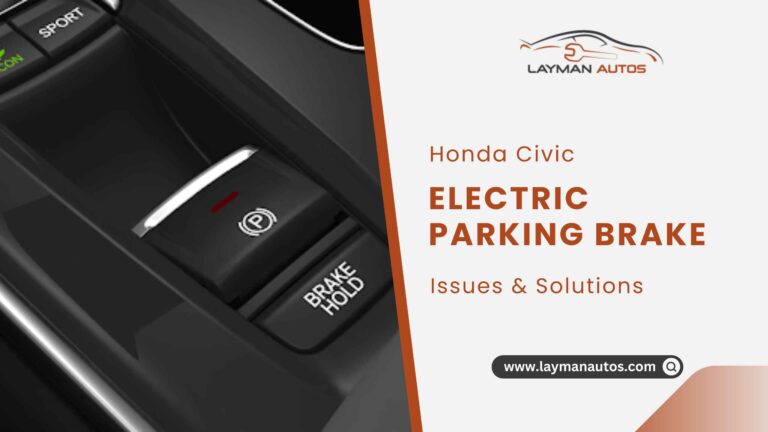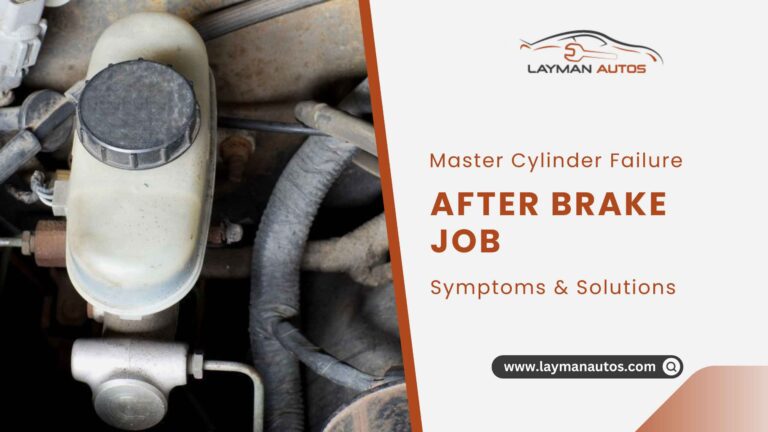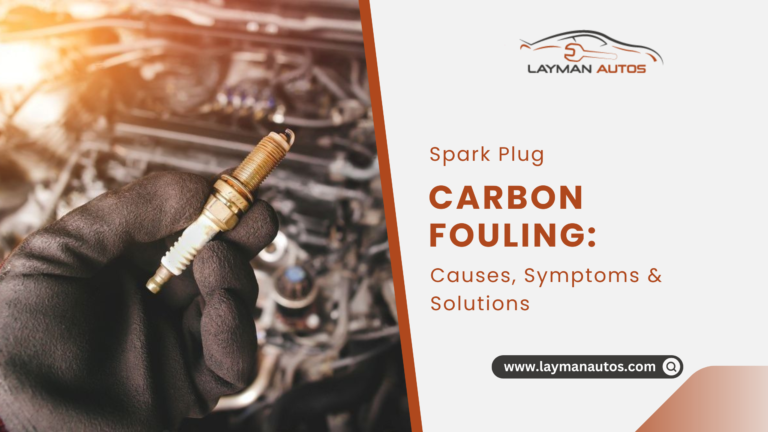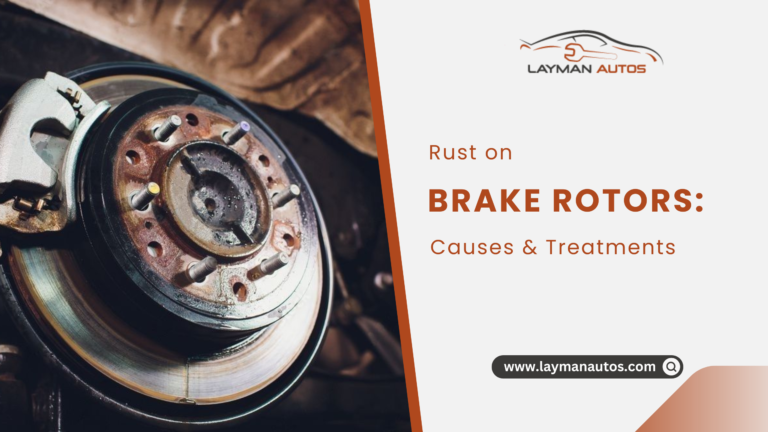How to Tell if an Engine is Damaged From No Oil: Signs & Symptoms
An automobile that has been neglected for too long without oil might require expensive maintenance. Find out what to do if you suspect your engine has been harmed due to a lack of oil.
Maintaining the health of the car’s engine is crucial. It won’t take long for the engine to seize up if you don’t replace the oil and maintain the fluid levels. You can research the signs of engine damage from lack of oil, but by the time you see most of them, it will be too late.
You’ll find a discussion of these signs and symptoms in this manual. We also talk about the importance of oil to an engine and what to do if harm has already been done.
How to Tell if an Engine is Damaged From No Oil: Signs Engine Damage
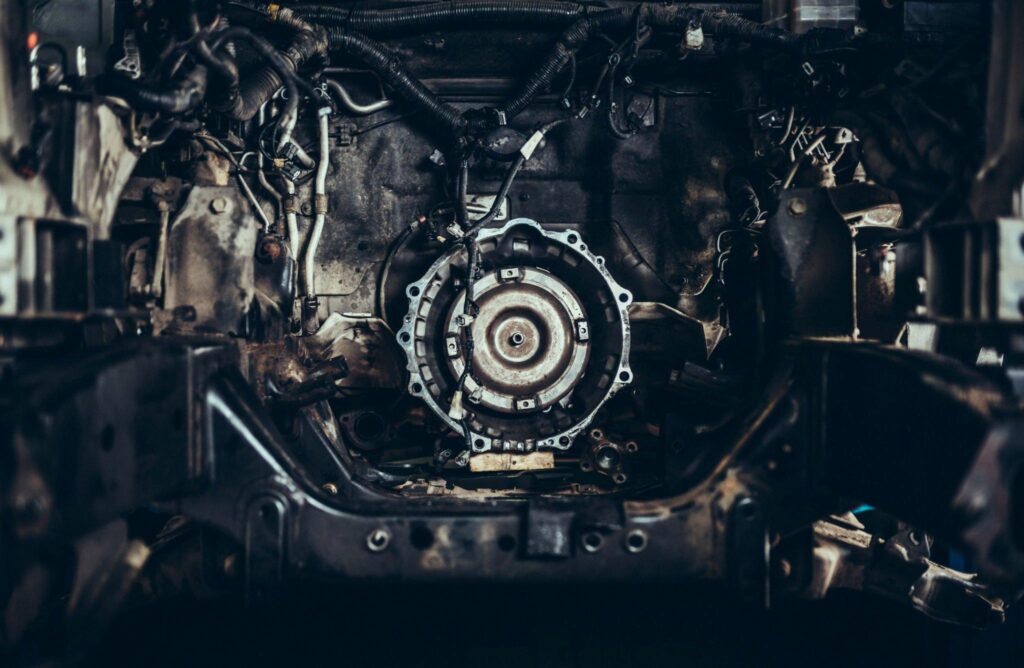
Some signs indicate that your automobile engine has been severely damaged due to a lack of oil, while other, less obvious faults may not become apparent until much later. Because of this, it is wise to examine the engine oil for metal fragments.
1. Disturbing Noises
There won’t be any unusual noises emanating from the automobile engine when it’s operating normally, but you could hear it. However, if the oil level is too low, the metal parts within won’t be properly lubricated against one another.
Symptoms of engine damage due to lack of engine oil include unusual noises like metal grinding. Additionally, permanent damage might be indicated by a burnt oil odour, an overheated engine, or smoke emanating from beneath the hood. A lack of response from the engine, or even a complete seizure, might be an indication of insufficient oil or damage.
The result is a grinding noise produced by the metal components rubbing against and damaging one another. Noises like clunking, banging, or rattling may also be present. If you keep driving the engine without oil, the metal rods will shatter and the automobile will be rendered useless.
2. Strong Odor of Burning Oil
When motor oil becomes solidified, it might catch fire. Sometimes this indicates an oil leak is to blame for the fire.
However, if you notice a burning oil odor emanating from the engine, it might be a sign that metal parts are grinding together and causing unnecessary friction. The remaining oil is ignited by friction and quickly consumed.
3. Overheating Engine
Overheating occurs as a result of increased friction and wear in an engine that has not been properly lubricated. Moreover, there have been cases of engine fires caused by extensive damage.
The temperature gauge is a good indicator of whether or not there is an issue, so keep an eye on it. Whenever you notice that your car is overheating, you should pull over immediately to prevent any further damage.
4. Smoke Found Under Hood
As the engine heats up, smoke may start to billow out from below the hood. You should quickly turn off the car’s engine, as this is the first indicator of fire.
In this situation, your only choice is to turn off the car’s engine and let it cool down. The process of transporting it to your house is likely to endanger your life in some way.
5. Engine That Isn’t Responding
The way the engine reacts to your inputs may be the first indicator that damage is occurring. The engine may be worn out or seized if it no longer starts when you press the accelerator.
However, the decline in efficiency may be an indicator of impending irreversible harm. You should have it checked out as soon as possible since there is still a potential that you have detected the problem at an early stage.
What Happens to a Car Engine Without Enough Oil?
You might be wondering what happens to engines without oil. The engine cannot function without oil. Its purpose is to keep the internal parts cool by lubricating them and reducing friction. Substantial damage can occur in a matter of miles without oil or without the right levels.
Damage to the crankshaft or engine block is possible. Furthermore, the rods and cylinders might become worn with time. The engine might eventually seize up entirely, making the car immobile.
How Long Can I Drive Without Engine Oil?
You may be able to travel a little ways before the engine gives up on you, so don’t give up hope if your oil level is low. However, you shouldn’t drive at all if there is no oil in the engine. When the engine seizes, it might stop working again in a matter of minutes.

You may avoid this by keeping a constant check on the oil level in your automobile. If you see that the levels are dropping, you should immediately replenish them.
Signs of Low Engine Oil
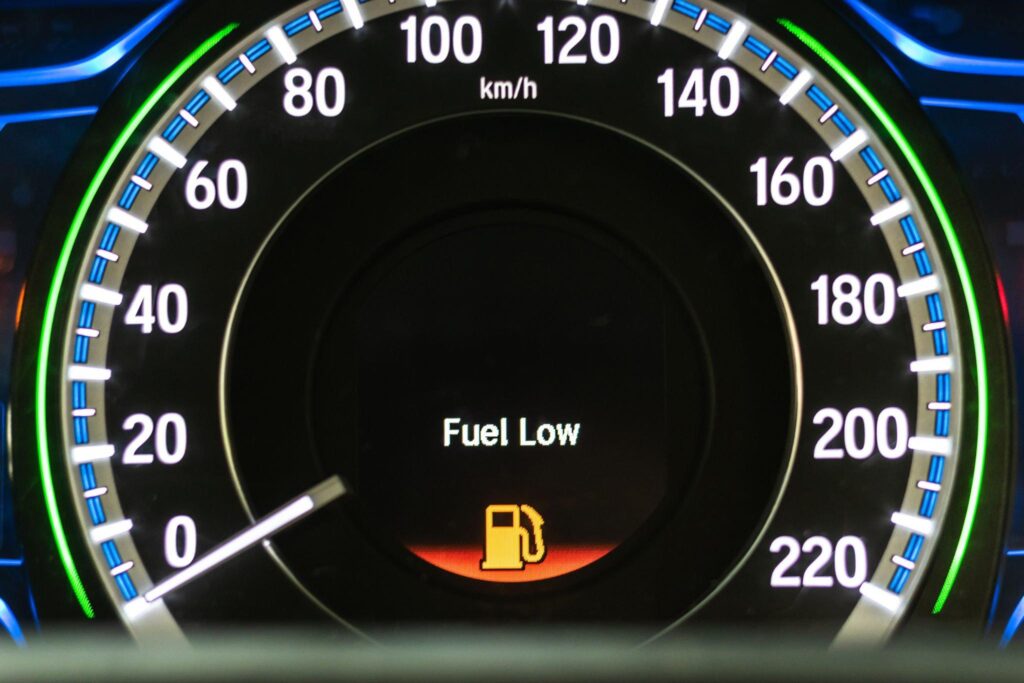
1) A Light That Goes On When Oil Is Low
When the oil pressure indicator light turns on, you know immediately that something is amiss. The pressure decreases in response to a fall in oil levels.
Whenever this light comes on, you must bring the car to a complete halt. If you respond quickly, it’s likely that you can remedy the issue without making things worse.
2) Oil Seepage
Leaking oil is a warning sign that the engine’s oil supply is getting low. Until you can get it looked at properly, you may be able to delay the inevitable by keeping up with the leak by adding oil.
However, if the engine runs out of oil due to a leak, the situation might become dire very quickly. You also don’t want to risk driving with an inadequate amount of oil in the motor. The cost of replacing the engine will far exceed the cost of fixing the leak.
3) Performing Slowly
It’s only when you’re paying great attention to your car’s engine that you’ll realize anything is wrong. When everything is in order, the engine is quick to respond, silent, and always prepared to go.
Engine performance, however, will decline as oil levels decrease. The sooner the alteration is detected, the higher the probability that it can be fixed before any significant harm is done.
4) Excessive heat
Motor oil is required to reduce friction between moving metal parts, so if you ever run out, your vehicle might suffer. When this happens, the engine overheats due to the friction.
The temperature may rise gradually at first, allowing you time to prepare. However, if you don’t replenish the oil soon, it may overheat, causing irreparable harm.
5) Weird Noises
As the oil level drops, you can notice some little noises. These won’t be as high as they are when the engine is either damaged or out of oil.
The problem may be only audible as a little change in tone, but an ear trained to detect difficulty will hear it right away. Practice regularly listening to the engine so you can identify its usual sounds.
Reasons for Oil Warning Light
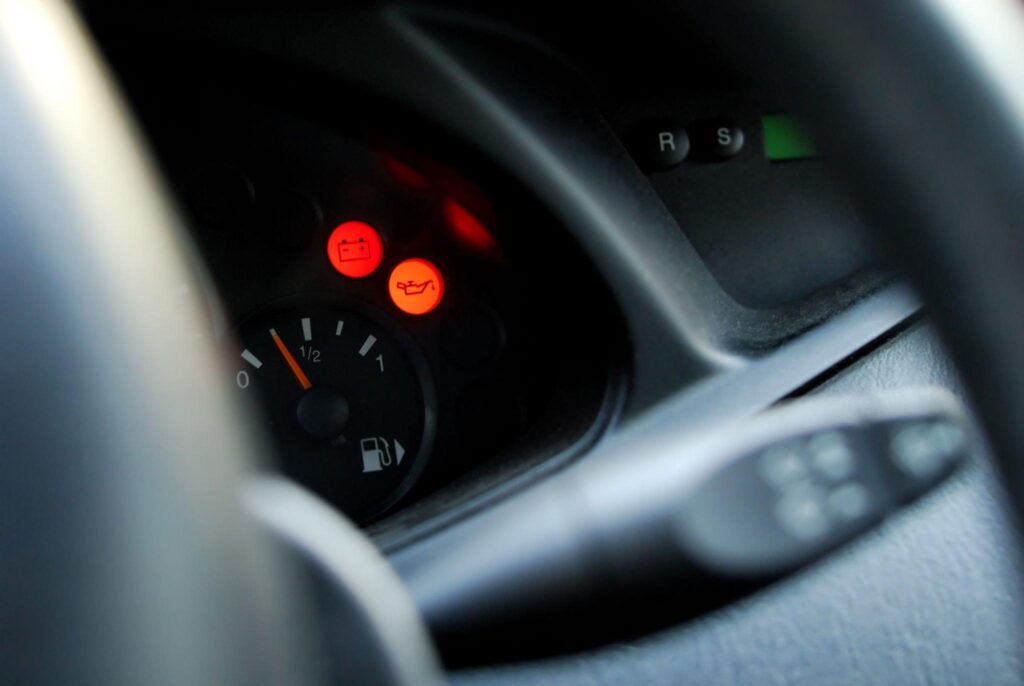
Here are a few reasons for the oil warning light on your car:
1. Reduced Oil Supply
We’ve established that low oil levels can trigger the oil pressure warning light. The first thing you should do is make sure the oil is at the proper level.
Nonetheless, there are a lot of vehicles that can keep going despite having low or no oil pressure without the engine shutting down. This warning light won’t activate until the oil level is dangerously low.
2. Reduced Pressure
The most frequent cause of this indicator’s illumination is low pressure. Engine oil level is monitored via a sensor.
The lack of oil in the engine’s tight spaces indicates a lack of pressure, which in turn indicates a lack of lubrication. Even if there is adequate oil in the engine, the components will start to rub against each other without the right amount of pressure.
3. Bad Oil Pump
It is possible that an oil pump malfunction is to blame for the low pressure. The oil pump draws oil from the sump and pumps it around the engine.
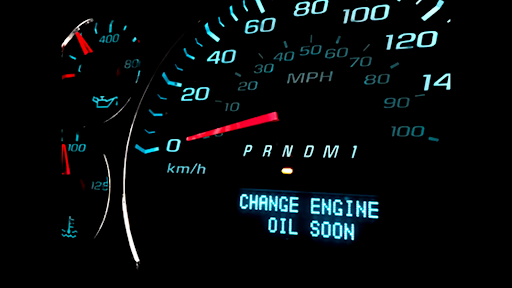
Lack of oil pump function causes a reduction in internal engine pressure. Areas of the engine don’t get enough lubrication if the pressure isn’t quite perfect.
4. Lacking Oil Pressure Sensor
Some breakdowns aren’t always the result of mechanical issues. In the presence of debris and sludge, the oil pressure sensor might get blocked. The light will turn on because the blocked sensor is giving a faulty measurement of the oil pressure.
Due mostly to a lack of upkeep, this issue arises frequently. Regular oil changes prevent pollution from building up and damaging the sensor, which can occur if the oil isn’t changed often enough.
How Long Does It Take to Ruin an Engine Without Oil?
Maintaining an engine’s functionality depends on oil being present and evenly distributed throughout the system. While it’s true that engines may function for short periods of time without oil, that time is often less than 30 minutes.
Take Your Car to a Repair Shop Immediately
If you try to drive your automobile without oil, be prepared for some serious problems. If the engine of your automobile is still functional, you may take certain precautions to ensure that it doesn’t get any worse. Put an immediate end to your automobile ride. Without oil, an automobile is useless.
Diagnosis and Repair by Professionals is Crucial
Minor driving for even a short time can wreck an engine. To prevent engine damage, oil your automobile before starting it. The oil will be pumped into the engine and run through it to lubricate all of the working parts.
Consistent Oil Changes Prevents Future Engine Issues
You should now know that if your automobile ever runs out of oil, you should take it to a repair shop immediately to get the oil changed by a professional, as this will prevent irreparable damage to the engine.
Drive Only If Necessary When Your Car Runs Out of Oil
Your local repair shop will be able to promptly diagnose and fix any problems caused by oil in your vehicle’s engine. Changing the oil on a consistent basis will help prevent future engine issues and is recommended.
Consider Towing Service Instead of Driving Without Oil
Finally, if you have run out of oil, you should only drive your automobile if you have to. Leaving your car’s engine without oil, even for a short time, can be disastrous. Therefore, if at all feasible, call a towing service to have your car taken to a repair shop.
Frequently Asked Questions
If your car has no oil will it start?
Just like how an automobile’s engine would sputter to a halt if its oil supply is cut off. Cars can’t run well without oil. Your car’s efficiency may suffer if you use the incorrect quantity of oil or if you neglect to do routine maintenance.
A car’s engine produces heat when it is started. Your engine’s aluminum and cast iron may melt due to the friction generated by its many moving parts. When it comes to keeping your engine running smoothly and safely in high temperatures, oil is important. If the oil level drops below the “fill” line, the engine will not start.
How do you know if your engine is damaged?
I’d like to talk about the typical signs that your engine is broken so that you can take care of it before it becomes worse. We’ll go through the signs and symptoms not covered here.
- Using a four-stroke combustion cycle, the internal combustion engine of a gas-powered vehicle transforms the energy in gasoline into mechanical energy. These four phases are known as the “strokes,” and they consist of the intake, compression, combustion, and exhaust phases, respectively. It’s possible that the power drop you’re feeling is due to problems with any of the four strokes of combustion.
- If you have noticed a decrease in fuel efficiency, it may be due to an issue with the compression stroke of your engine. Depending on the nature of the issue, a fuel system service or fuel cleaning may be required.
- If the exhaust stroke in your internal combustion engine is failing, you may notice a foul stench coming from the tailpipe. If your car has this smell, it has to be serviced immediately.
When the gas octane is off, high-performance automobiles are more likely to continue running after the ignition has been turned off. It might also be the result of a defective solenoid or an extremely responsive carburetor.
Is there a way to tell how long an engine can go without oil?
The performance of your engine suffers without engine oil. In as little as 5 or 10 minutes, your engine will be severely damaged if you leave it running without oil. You probably won’t make it the whole 30 minutes before your engine seizes and stops working entirely.
That’s why it’s crucial to keep a close watch on your oil levels and always maintain your engine well-lubricated and fresh.
Regular oil changes should be performed every 3,500 to 5,000 miles if your vehicle requires conventional oil. Oil changes should be performed every 7,500 to 10,000 miles if you are using synthetic oil in your vehicle.
Moreover, running your car without oil for 10 seconds won’t hurt much to your engine.


